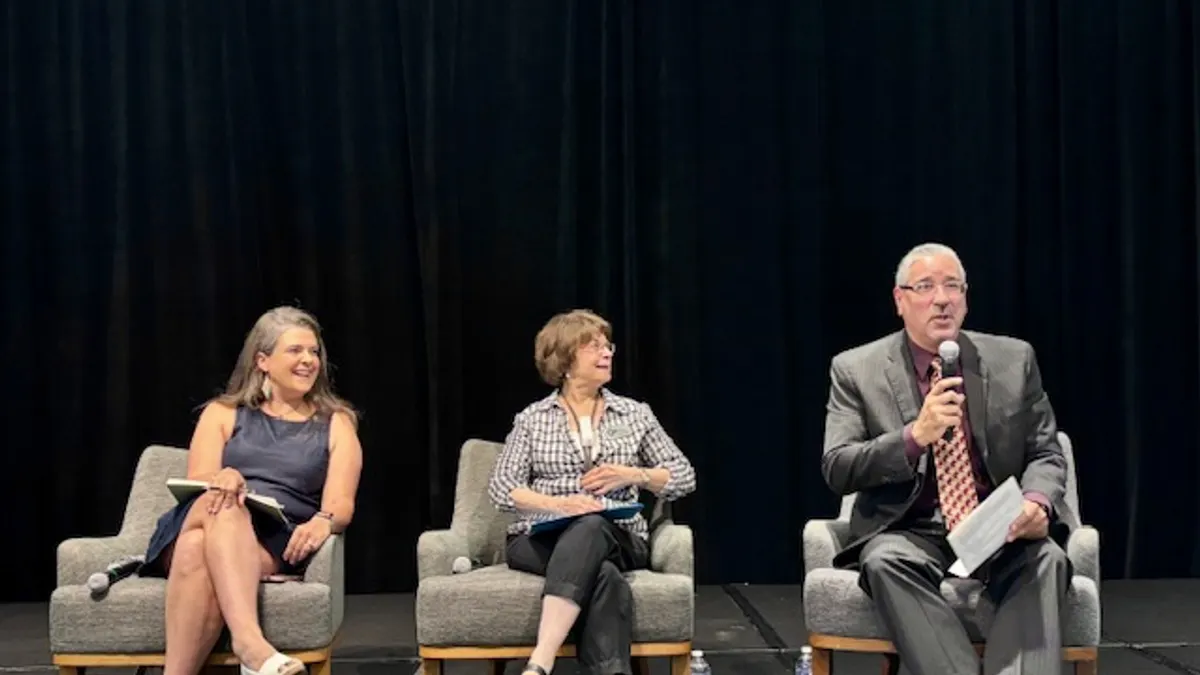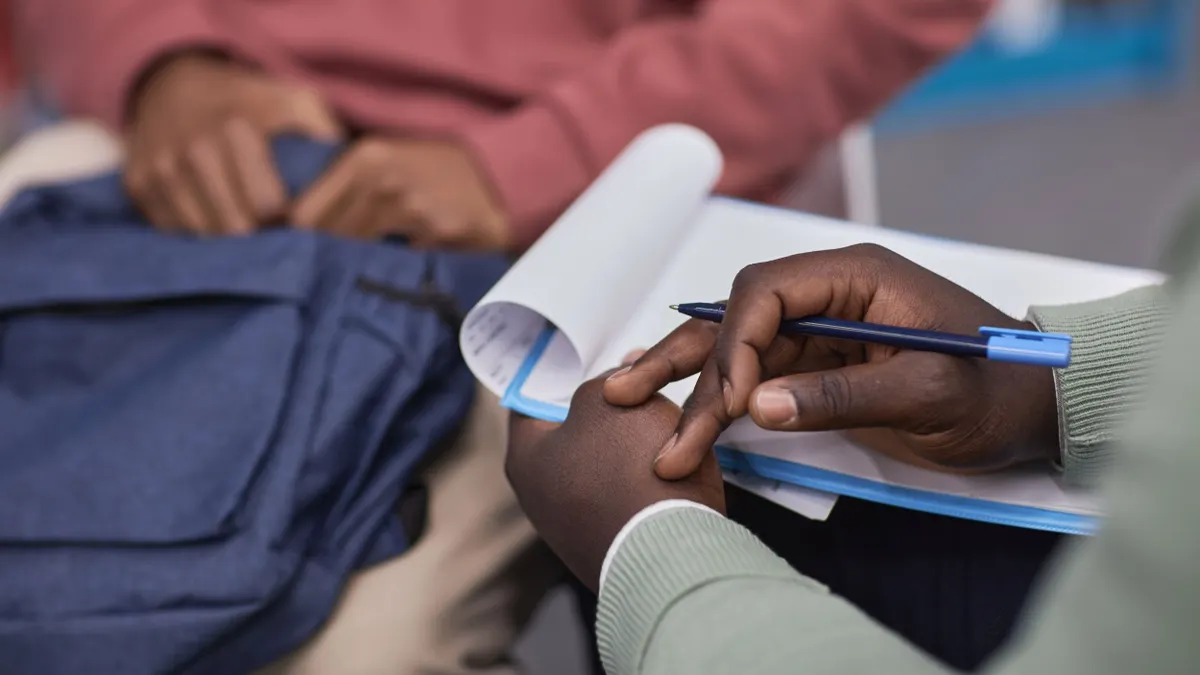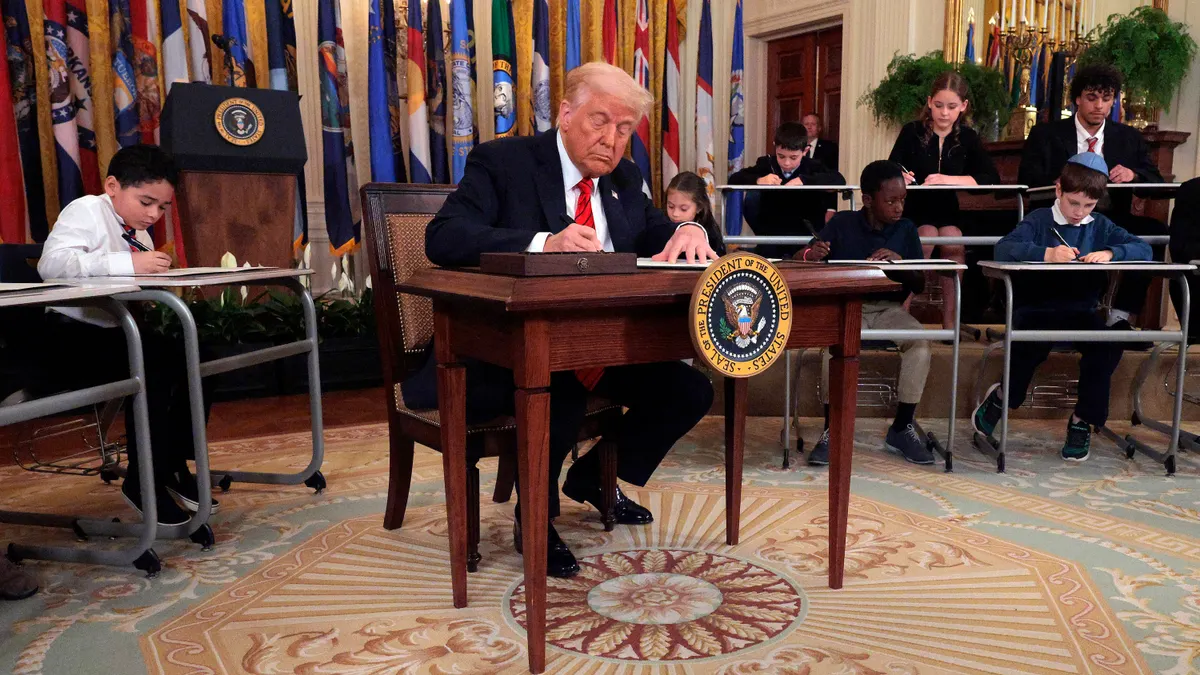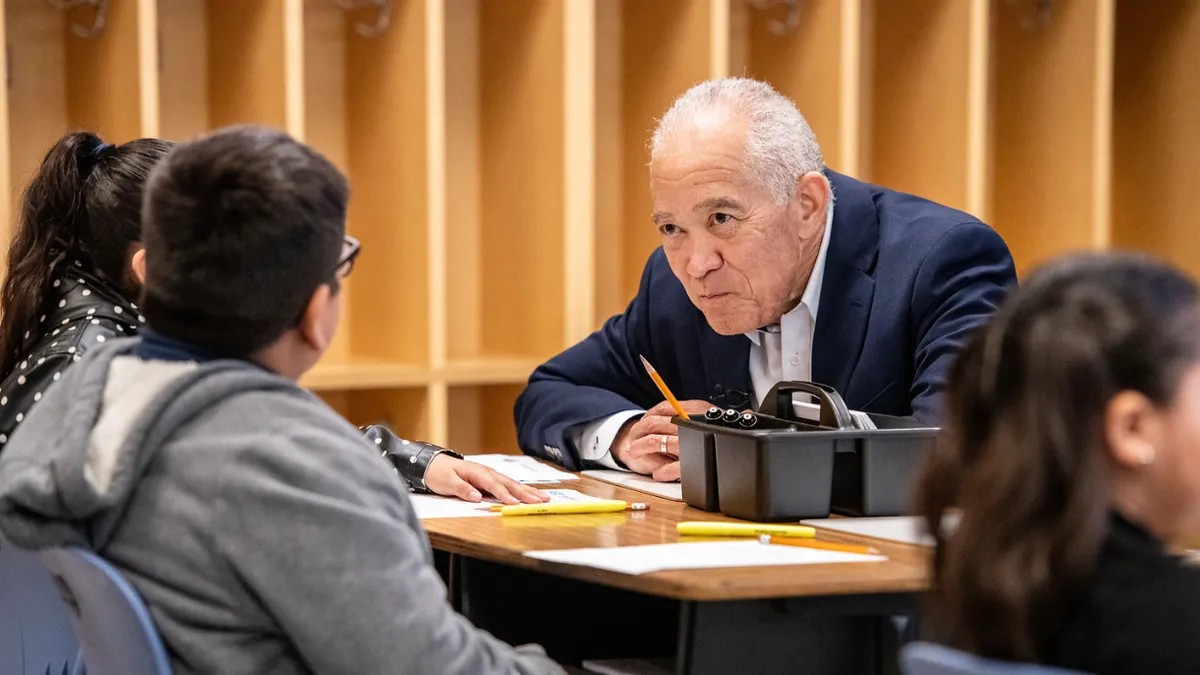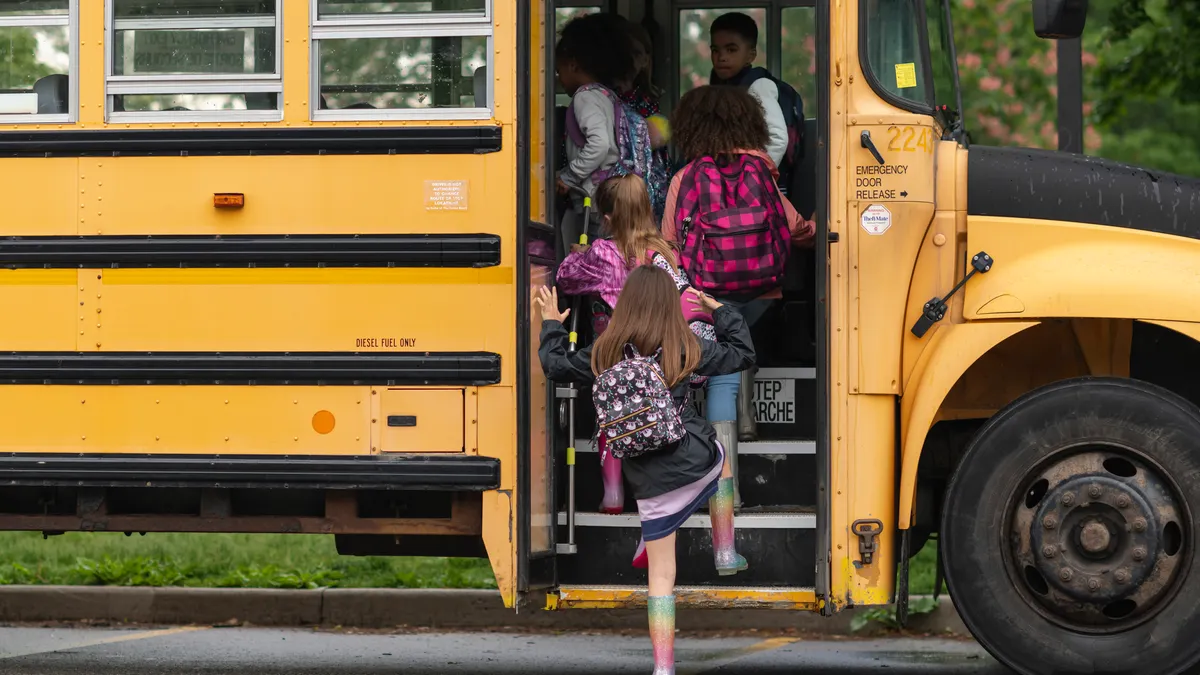ALEXANDRIA, Va. — Special education professionals from across the country are urging the federal government to make investments in student mental health, citing the dire need for student supports and the lack of qualified school-based mental health experts.
Special educators are also pressuring the U.S. Department of Education to release congressionally approved funding for student mental health services and for professional development.
These mental health investments were discussed during a Monday session at a legislative summit hosted by the Council for Exceptional Children and the Council of Administrators of Special Education. Both organizations support special education professionals.
"A lot of districts just simply don't have the financial resources necessary to hire the number of counselors and social workers and psychologists that they want," said Kelly Vaillancourt Strobach, director of policy and advocacy for the National Association of School Psychologists. Vaillancourt Strobach said an additional challenge is that there are not enough trained school psychologists to meet schools’ demands.
NASP recommends that schools have one psychologist for every 500 students. However, data from the 2023-24 school year shows the ratio was 1-to-1,065, according to the Education Department.
The school psychologist shortages are occurring as demand for K-12 mental health services increases. According to the National Center for Education Statistics, only 48% of public schools in 2024 reported they were able to effectively provide mental health services to all students who need them — a nearly 10 percentage point decline from 2021-22.
Status of mental health grants
In addition to rising student mental health concerns and provider shortages, there are worries over reduced federal funding for student well-being. Specifically, congressionally approved funding for the School-Based Mental Health Services Grant Program and the Mental Health Service Professional Demonstration Grant Program was canceled by the Education Department this spring.
Both are multi-year grant programs that total $1 billion and are part of the Bipartisan Safer Communities Act enacted in 2022. Vaillancourt Strobach estimated that about 3,000 people would no longer enter the school psychology profession because of the grant cancellations.
School districts, states and universities had been anticipating the funds to use for the upcoming school year but were told in April by the Education Department that they were being discontinued because they conflicted with priorities under the Trump administration, according to a lawsuit filed by 16 states in the U.S. District Court Western District of Washington at Seattle.
The lawsuit also said the Education Department "intends to recompete" the mental health grants based on new priorities, which it identified as “merit, fairness, and excellence in education."
On Thursday, the Education Department is planning to publish proposed priorities for both grants, according to notices in the Federal Register. Among the draft priorities for the school-based mental health grants, funding will be targeted to high-need districts and will prohibit the use of grant money for "promoting or endorsing gender ideology, political activism, racial stereotyping, or hostile environments for students of particular races.”
The Education Department defines high-need districts as those having:
- A psychologist-student ratio greater than 1-to-500.
- High rates of school violence, poverty, substance use, suicide, trafficking or other adverse childhood experiences.
- Received a Project School Emergency Response to Violence grant from the Education Department since Oct. 1, 2020, or experienced a traumatic event since Jan. 1 and did not receive a Project SERV grant.
The school-based mental health grant program will also require grant recipients to initiate mental health services to students as soon as possible and no later than 270 days from receiving the money.
Vaillancourt Strobach said Wednesday in an email to K-12 Dive that while NASP appreciates the Federal Register notices' acknowledgment of the importance and value of school psychologists, the proposals no longer support efforts to train, recruit and retain school counselors and school social workers.
That omission "goes against Congressional intent and does not align with best practices," she said.
Finding common ground
Student safety and well-being are high priorities for schools, but emotional supports are also needed for school staff, said panelist George Roberts, an associate superintendent for Anne Arundel County Public Schools in Maryland.
On the first day of the 2012-13 school year, Roberts was principal of a high school in Baltimore County, Maryland, when a student fired a shotgun in the cafeteria and injured another student. Roberts said he's held guilt about the shooting ever since, but what has helped him is working proactively with other education leaders who have experienced school shootings.
The Principals Recovery Network, sponsored by the National Association of Secondary School Principals, assists principals in the aftermath of a crisis on campus. The organization also advocates for violence prevention strategies, including supports for student and educator well-being, Roberts said.
"Mental health is a common-ground issue," Roberts said.


